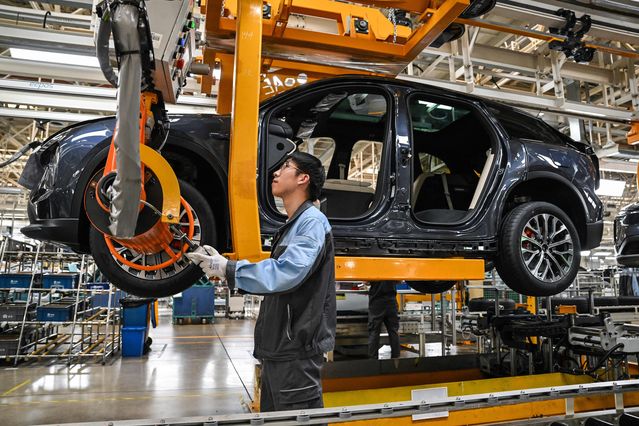Chinese EV start-up NIO is set to report second-quarter numbers Tuesday morning amid questions about competition, demand, pricing, and the Chinese economy. A lot more than just bottom-line earnings will be investors’ focus.

Still, investors will start with the numbers. Wall Street expects a per-share loss of about 33 cents a share from $1.3 billion in sales, according to Bloomberg.
The loss from estimated aggregated by FactSet is a little bigger at 41 cents a share. Sales estimates are similar. FactSet is an aggregation of five numbers. Bloomberg is using nine estimates.
A year ago, NIO (ticker: NIO) reported an adjusted loss of 19 cents a share from $1.5 billion in sales. Sales are down year over year because deliveries are down. NIO delivered about 23,500 units in the second quarter, down from about 25,000 units delivered in the second quarter of 2022.
A big rebound is expected for the third quarter. NIO delivered 20,462 units in July, boosted by sales of the ES6 SUV which have been growing since its introduction in May 2023. July deliveries exceeded 10,000 units in July.
Wall Street is looking for about 50,000 units delivered in the third quarter. That looks doable based on July figures.
Delivery guidance will tell a story about how NIO is doing. It will also reveal something about EV demand in China. In the first seven months of the year, battery-electric vehicle demand is up about 25% year over year, according to data aggregated by Citi analyst Jeff Chung. Strong, but August sales are set to fall a little year over year.
Falling sales might be why Chinese EV makers, including Tesla (TSLA) have cut prices on some 25 models in August.
Falling sales and weakening demand have been too much for investors. NIO shares are down about 45% over the past 12 months and off about 28% over the past month. The S&P 500, for comparison, is up about 10% over the past 12 months and off about 4% over the past month.
Management hosts a conference call at 8 a.m. Eastern time to discuss results. Analysts and investors will want to hear more about all the issues impacting shares: deliveries, demand, and the state of the Chinese economy.
